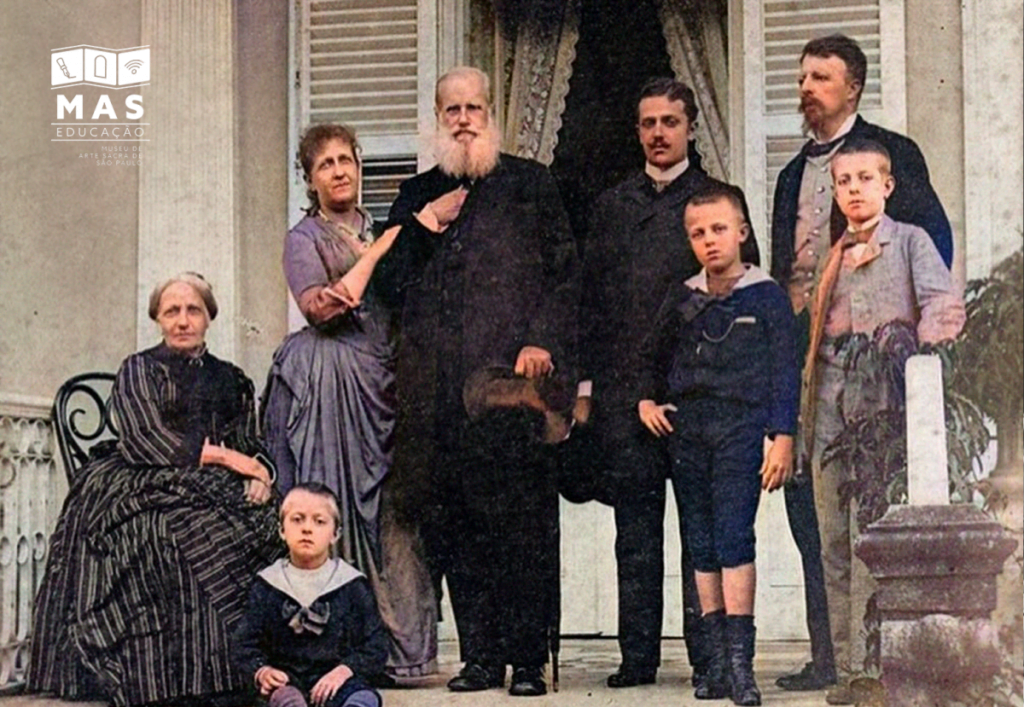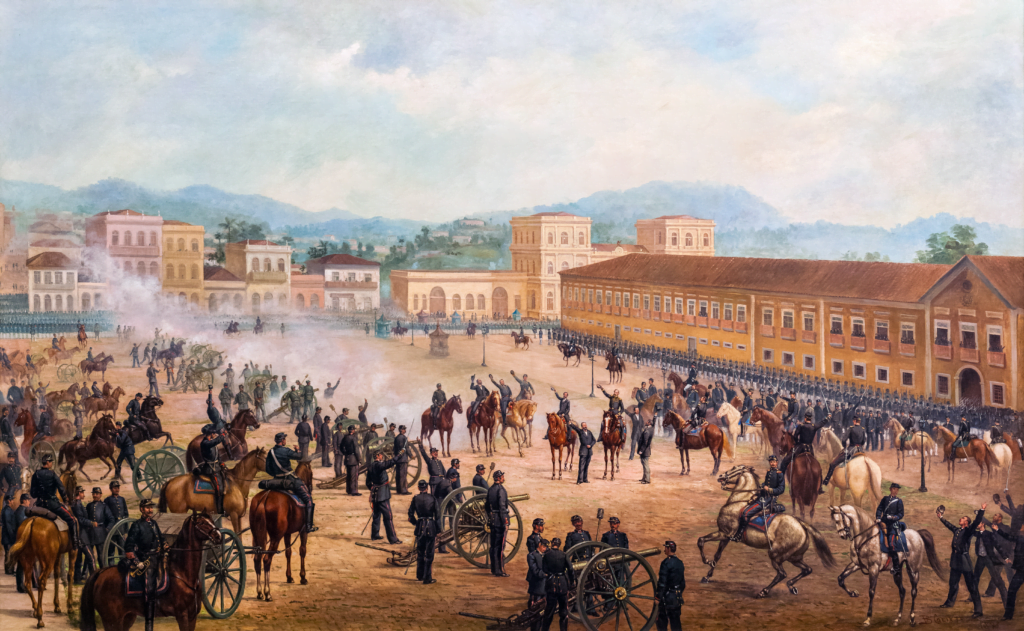Hello everyone, everything good? We are getting close to a major holiday! In this post, we will talk about the Proclamation of the Republic, an event that marked the history of Brazil on November 15, 1889. Let's explore the events that led to this significant change in the Brazilian system of government.
Background: The 1870s

To understand the Proclamation of the Republic, it is essential to return to the roots of this political transition. In the 1870s, Brazil was facing significant challenges. At the time, the country was involved in the Paraguayan War, and Emperor Dom Pedro II sought to maintain a stricter government. To do this, he dismissed the cabinet that was not aligned with his interests, handing the elections to the Conservative Party, which was favorable to him.
However, this action caused great discontent, especially among liberals, who were excluded from the government. As a result, the São Paulo Republican Party (PRP) began to gain strength, gradually gaining positions in the government and in the Chamber of Deputies.
The Brazilian Army and Politics

The Brazilian army played a significant role in this period of political transition. Since the times of the Empire, the army had already been a political influence, as was the case with the deposition of Dom Pedro I in 1831. However, during the Paraguayan War, the army gained more strength and political influence, resulting in a sensation of corporatism among the military.
Social and Economic Changes
At the same time, Brazil was going through important social and economic changes. The farmers, mainly those involved in coffee production in São Paulo and the west of São Paulo, were seeking to modernize their techniques and production methods. This included the transition from slave labor to salaried labor, given that the abolitionist movement was gaining strength in Brazil.
The Golden Law and the Political Crisis

The Áurea Law, which abolished slavery in Brazil in 1888, was an achievement for our entire country. However, it was also a source of tension. Farmers in Vale do Paraíba Fluminense, who were facing economic difficulties, demanded compensation for the end of slavery, which was not met. This weakened the support the Crown had among farmers.
The Military Coup and the Proclamation of the Republic

The Proclamation of the Republic was precipitated by rumors and conspiracies that led to a confrontation between the army and the imperial government. On November 15, 1889, Marshal Deodoro da Fonseca led a military coup that resulted in the deposition of the government of the Viscount of Ouro Preto, president of the Council of Ministers.
Dom Pedro II, who was in Petrópolis, received news of the deposition and tried to organize a counter-revolution, but ended up being forced to board a ship and go into exile in Europe. Princess Isabel was also affected by these events, losing the throne and, shortly afterwards, her own mother, Empress Teresa Cristina.
Conclusion
The Proclamation of the Republic on November 15, 1889 marked the end of the monarchy in Brazil and the beginning of a new republican era. Political, social and economic events culminated in this drastic change in the country's government system. Brazil became a republic, and Dom Pedro II spent his last years in exile. The political and social transition of this period left profound marks on the history of Brazil.
I hope this article has provided a clear picture of the events that led to the Proclamation of the Republic in 1889. If you have any questions or comments, please feel free to share!
References
Proclamation of the Republic (usp.br)
Special Proclamation of the Republic – UNIVESP (youtube.com)
UFRJ National Museum, November 15th and Proclamation of the Republic (facebook.with)
Manoel Deodoro da Fonseca – National Archive (presidents.an.gov.br)